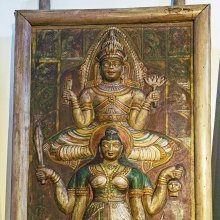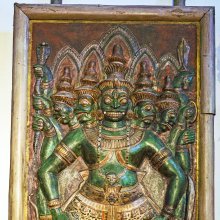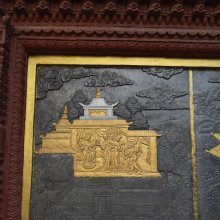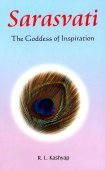Sickness: 1 definition
Introduction:
Sickness means something in Hinduism, Sanskrit. If you want to know the exact meaning, history, etymology or English translation of this term then check out the descriptions on this page. Add your comment or reference to a book if you want to contribute to this summary article.
Images (photo gallery)
In Hinduism
Yoga (school of philosophy)
Source: ORA: Amanaska (king of all yogas): A Critical Edition and Annotated Translation by Jason BirchSickness (caused by holding the breath—as a Yogic practice) is denoted by the Sanskrit term Vyādhi, according to the Amanaska Yoga treatise dealing with meditation, absorption, yogic powers and liberation.—Accordingly, as Īśvara says to Vāmadeva: “[...] What is to be gained by [manipulating] the vital winds, [even when] practised for a long time? [What gained] by the hundreds of [ways] of holding the breath, which cause sickness (vyādhi-prada) and are arduous, and by the many Mudrās, which are painful and difficult to master? You [should] serve continually the one and only guru to obtain that [no-mind state] whose nature is innate, on the arising of which, the breath, mighty [though it is], instantly disappears by itself. [...]”.

Yoga is originally considered a branch of Hindu philosophy (astika), but both ancient and modern Yoga combine the physical, mental and spiritual. Yoga teaches various physical techniques also known as āsanas (postures), used for various purposes (eg., meditation, contemplation, relaxation).
See also (Relevant definitions)
Starts with: Sickness crotalaria.
Full-text (+776): Vyadhi, Roga, Mandya, Hatnu, Anarogya, Utklesha, Atanka, Amaya, Ullagha, Shvayici, Dehakshaya, Doshika, Tamovikara, Niramaya, Apatava, Rujakara, Macala, Asvasthya, Vikara, Stanayitnu.
Relevant text
Search found 215 books and stories containing Sickness; (plurals include: Sicknesses). You can also click to the full overview containing English textual excerpts. Below are direct links for the most relevant articles:
Maha Prajnaparamita Sastra (by Gelongma Karma Migme Chödrön)
II. Attributes to be fulfilled (prāptukāma) and attributes to be cognized (jñātukāma) < [Part 1 - General questions]
V.2 Generosity of the Dharma (dharmadāna) < [V. Recollection of abandonment (tyāgānusmṛti)]
VII. Ills of the world (2) Wretchedness of lands < [Chapter XXXVII - The Ten Concepts]
Vimalakirti Nirdesa Sutra (by Robert A. F. Thurman)
Chapter 5 - The Consolation of the Invalid
Chapter 2 - Inconceivable Skill in Liberative Technique
Bhakti-rasamrta-sindhu (by Śrīla Rūpa Gosvāmī)
Verse 2.4.84 < [Part 4 - Transient Ecstatic Disturbances (vyābhicāri-bhāva)]
Verse 2.4.89 < [Part 4 - Transient Ecstatic Disturbances (vyābhicāri-bhāva)]
Verse 3.2.124 < [Part 2 - Affection and Service (dāsya-rasa)]
Bodhisattvacharyavatara (by Andreas Kretschmar)
Text Section 298 < [Khenpo Chöga’s Oral Explanations]
Text Section 119 < [Khenpo Chöga’s Oral Explanations]
Text Section 125 < [Khenpo Chöga’s Oral Explanations]
Bhesajjakkhandhaka (Chapter on Medicine) (by Hin-tak Sik)
Contributions of this Study < [Chapter 6 - Conclusion]
Introduction < [Chapter 5 - Diseases and Treatments in the Chapter on Medicine]
Concepts of Health and Disease (In early Buddhism) < [Chapter 3 - Concepts of Health and Disease]
The Markandeya Purana (by Frederick Eden Pargiter)
Related products
(+1 more products available)








